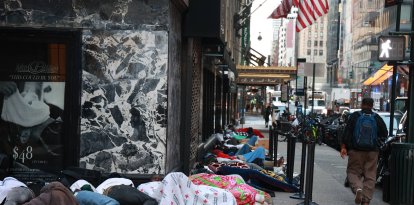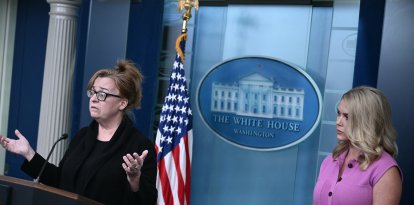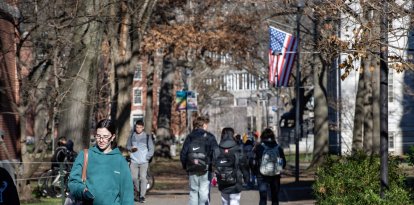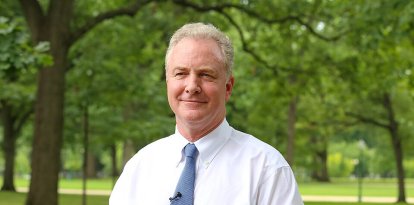Less than a month after arriving in the Senate, Laphonza Butler decides not to run in 2024
The activist was Gavin Newsom's choice to replace Dianne Feinstein after her death.
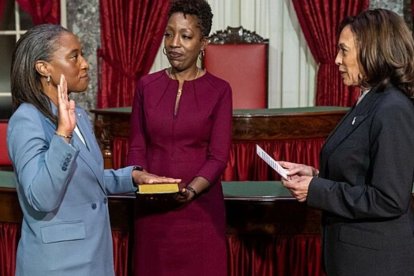
Wikimedia Commons
Dianne Feinstein passed away on September 30 at the age of 90. The Democrat from California was the longest-serving female Senator, and Gavin Newsom honored that legacy by choosing another woman to replace her: Laphonza Butler, an activist with close ties to Kamala Harris. However, less than a month after taking office, she confirmed that she will not seek a full term in 2024.
As a general rule, when a member of the Senate dies while in office (or resigns), it is the governor of the state they represent who is in charge of appointing a successor, and sometimes a special election is called to support that decision with the popular vote. In this case, that responsibility fell to Newsom.
The current governor of California is no stranger to this type of situation since he had to name Kamala Harris’ replacement when she was elected vice president in 2020. At the time, he selected Secretary of State Alex Padilla, who was later elected to a full term in 2022.
On this occasion, the Democrat leaned toward Butler, a well-known state activist very close to the current vice president. Once sworn in, she became the third African-American woman to serve in the Senate and the first lesbian and African-American to do so.
At the time of her election, she was president of EMILY’s List. This association promotes the election of Democratic women who “lead the fight for abortion rights, the right to vote, and against the extremist Republican agenda.”
“It’s the right decision for me”
According to what she told the New York Times in an interview, precisely these first weeks in the Senate led her to realize that It wasn’t the best place to “use my voice.” However, she plans to be “California’s loudest and proudest advocate” throughout her year in office.
She confirmed the news in a subsequent statement, briefly explaining why she made the decision. “I’ve always believed elected leaders should have real clarity about why they’re in office and what they want to do with the responsibility and power they have. I’ve spent the past 16 days pursuing my own clarity — what kind of life I want to have, what kind of service I want to offer and what kind of voice I want to bring forward,” she said.
“After considering those questions, I’ve decided not to run for a full term in the U.S. Senate. Knowing you can win a campaign doesn’t always mean you should run a campaign. I know this will be a surprise to many because traditionally, we don’t see those who have power let it go. It may not be the decision people expected, but it’s the right one for me,” she added.
The race to 2024
With Butler out of the race, the Democratic Party has three major contenders who have already announced their respective candidacies: Barbara Lee, Katie Porter and Adam Schiff. They all currently serve in the House of Representatives, although Lee and Schiff have served long before Porter.
According to surveys, Porter and Schiff lead the preferences of Democratic voters and are very even in terms of fund development and in the polls.
RECOMMENDATION


